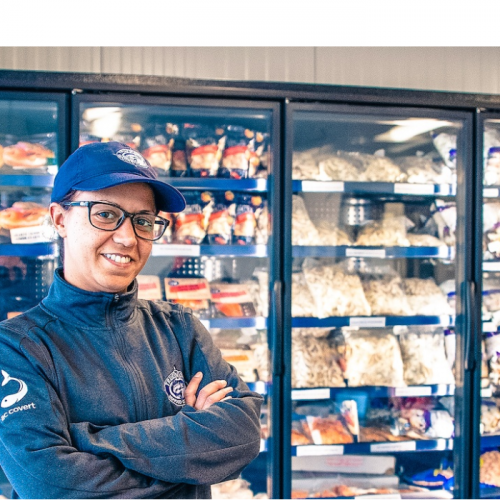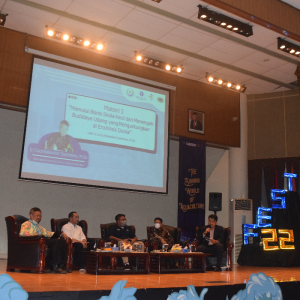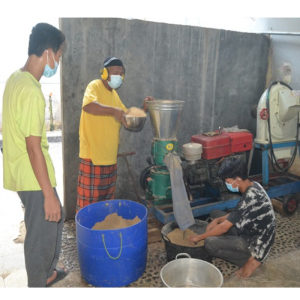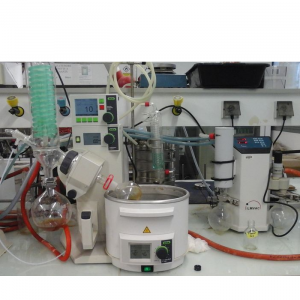
COVID-19: Canada Look To Aquaculture To Boost Food Security
| Mon, 31 Aug 2020 - 17:00
The COVID-19 pandemic is pushing governments and researchers around the world to improve the resiliency of aquaculture operations to provide affordable and healthy protein to its citizens. As the pandemic shows no signs of letting up, reports from the U.S. to Singapore and Scotland and here in Canada reflects a growing push to increase aquaculture operations as countries seek to be more self- sufficient, sustainable and secure in food production. Aquaculture coalitions led by scientists are also building efforts to get more people to eat seafood and counter falsehoods perpetuated by anti-fish farming activists.
Dispelling the myths that aquaculture threatens the fishing industry and environment are among the biggest challenges, said Amy Schrank, of the Minnesota Sea Grant, part of the Great Lakes Aquaculture Collaborative, which brings together scientists and educators from all eight U.S. states in the Great Lakes basin.
Also read: Million Dollar Grant Funds Study of Great Lakes Aquaculture
The Collaborative recently received a million-dollar grant from the National Oceanic and Atmospheric Administration (NOAA) to study aquaculture and boost the number of fish farms in the Great Lakes region. Schrank, a fisheries and aquaculture extension educator from Minnesota Sea Grant, told the Great Lakes Echo that the industry must educate the public that aquaculture can be sustainable and environmentally friendly. Another barrier to industry growth is the use of the phrase “wild caught” on packaging. It gives the impression that farm raised fish are an unhealthy option. But wild caught fish aren’t necessarily better, said Lauren Jescovitch an outreach specialist and educator with Michigan Sea Grant.
The study published in the Journal of Agriculture and Food Research found farmed Atlantic and farmed organic Atlantic salmon had the lowest amounts of mercury, with relatively high omega-3s when compared to wild Pacific salmon.
The U.S. currently imports 85% of its seafood, resulting in a $14 billion trade deficit states the NOAA. As trends in seafood consumption continue to rise, wild-caught fisheries alone cannot meet the seafood demands of the U.S. population. America is also enacting laws to open up its oceans for aquaculture production and is creating a National Seafood Council that aims to increase domestic seafood consumption and tackle coronavirus woes.
In Scotland, a rapid response funding call designed to support Scotland’s aquaculture sector as it traverses the COVID-19 pandemic, has been launched by the Scottish Aquaculture Innovation Centre (SAIC). Through the package, SAIC will provide funding of up to GBP 50,000 (USD 63,450, EUR 55,477) to successful applicants, with business partners expected to match or exceed the investment through financial and in-kind contributions, reported Fishsite.com.
Also Read: Study Discusses Four Possible Scenarios for Growth Of Aquaculture In The COVID-19 Era
While COVID-19 has been a significant challenge to aquaculture, it is beginning to turn the corner towards recovery, which offers the opportunity to introduce new, innovative ways of working, SAIC Director of Business Engagement Sarah Riddle said.
“The sector can use this time as a catalyst for change – whether it is the development of more efficient processes or amplifying the ongoing focus on sustainability,” Riddle said. “Our new rapid-response funding call will support the sector through the months ahead, remaining open to allow for new projects and ideas as the situation evolves.”
Singapore, which has set the goal of increasing its self-sufficiency in food production from 10 percent to 30 percent by 2030 to address food security, views aquaculture becoming a bigger contributor to its food system.
Currently, Singapore imports more than 90 percent of its food. With at least 90 fish farms floating off Singapore’s coast, experts say the problem isn’t with production capacity, but public perception.
In June, Friend of the Sea, a Milan, Italy-based certifier of aquaculture, fishmeal, and wild-capture fisheries that recognizes sustainable fishing and aquaculture practices, signed a memorandum of understanding with the Institution of Aquaculture Singapore to collaboratively move toward the development of environmentally-responsible aquaculture processes in Singapore.
In New Zealand, cosmetics giant Mary Kay plans to work with The Nature Conservancy on a range of projects, including two involving shellfish aquaculture. Mary Kay and The Nature Conservancy will engage with indigenous people in sustainable aquaculture, including supporting the implementation of restorative activities in Auckland’s Hauraki Gulf to restore wild shellfish populations and launching a challenge fund to encourage greater philanthropic support for restoration of wildlife.
“We need healthy, diverse oceans for fishing, working and playing,” said Lily Verdone, Director of Freshwater and Marine at The Nature Conservancy.
Also read: The Grain Gain: Could Barley Protein Revolutionise The Aquafeed Sector?
In England, scientists at Cambridge’s Department of Zoology have teamed up with Cambridge-based company BioBullets to supercharge one of the world’s most healthy and sustainable sources of animal protein: bivalve shellfish such as oysters, clams and mussels. Dr David Aldridge and PhD student David Willer have produced the world’s first microcapsule specially designed to deliver nutrients to bivalves which are beneficial to human health. These “Vitamin Bullets” – manufactured under patent by Aldridge’s company, BioBullets – are tailored for optimal size, shape, buoyancy and to appeal to shellfish. This breakthrough, described in a study published today in the journal Frontiers in Nutrition, is particularly valuable because when we eat bivalves, we consume the entire organism including its gut, meaning that we digest the nutrients which the animals consumed towards the end of their lives. This makes bivalve shellfish the ideal target for nutritional fortification.
Here in Canada, the aquaculture industry currently provides 30,000 good middle-class jobs on all three coasts, mostly in coastal, rural and Indigenous communities.
The Government of Canada has begun work to introduce Canada’s first-ever Aquaculture Act, with the aim of bringing more clarity and transparency to Canadians as to how aquaculture will be managed in order to achieve responsible and sustainable growth.
As part of this initiative, it has announced tens of millions of dollars in research funding. In the latest round of funding announcements the Government of Canada announced that it will be providing about two million dollars to researchers at the University of BC (UBC) and fish farmer, Mowi, to come up with a BC-based solution for growing larger, more physiologically robust Atlantic salmon smolts before they are transferred to the marine environment.
A longer production period on land for smolts in freshwater recirculating aquaculture systems (RAS) could lead to reducing the amount of time farmed Atlantic salmon spend in marine net-pens. Correspondingly, that means less exposure to naturally occurring sea lice and algae blooms in the sea water phase.
This is in addition to the $62.5 million Canadian Seafood Stabilization Fund (CSSF), to support the Canadian aquaculture and wild-capture fish and seafood sectors as they weather the COVID-19 pandemic on the front lines.
(Image courtesy of Cooke Seafood shows the company’s new distribution centre and retail outlet in Dartmouth, NS.)
Source: Sea West News






















